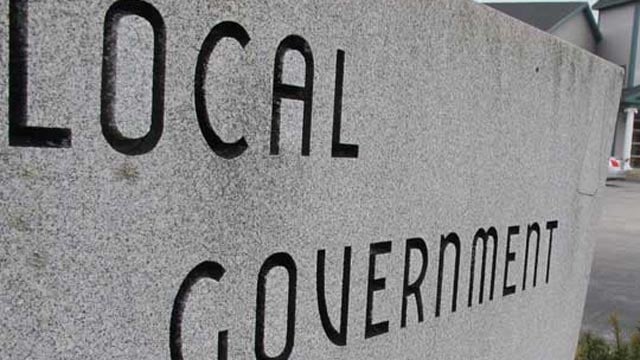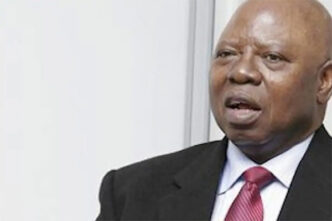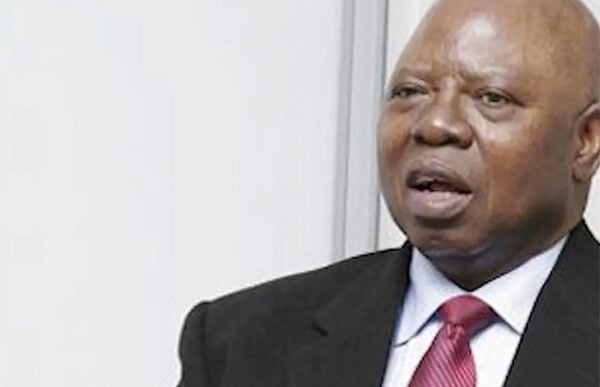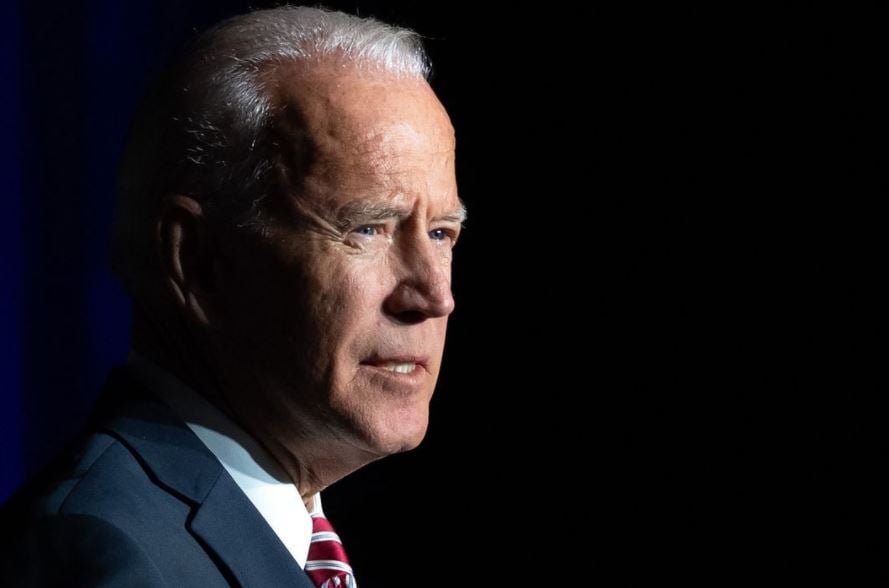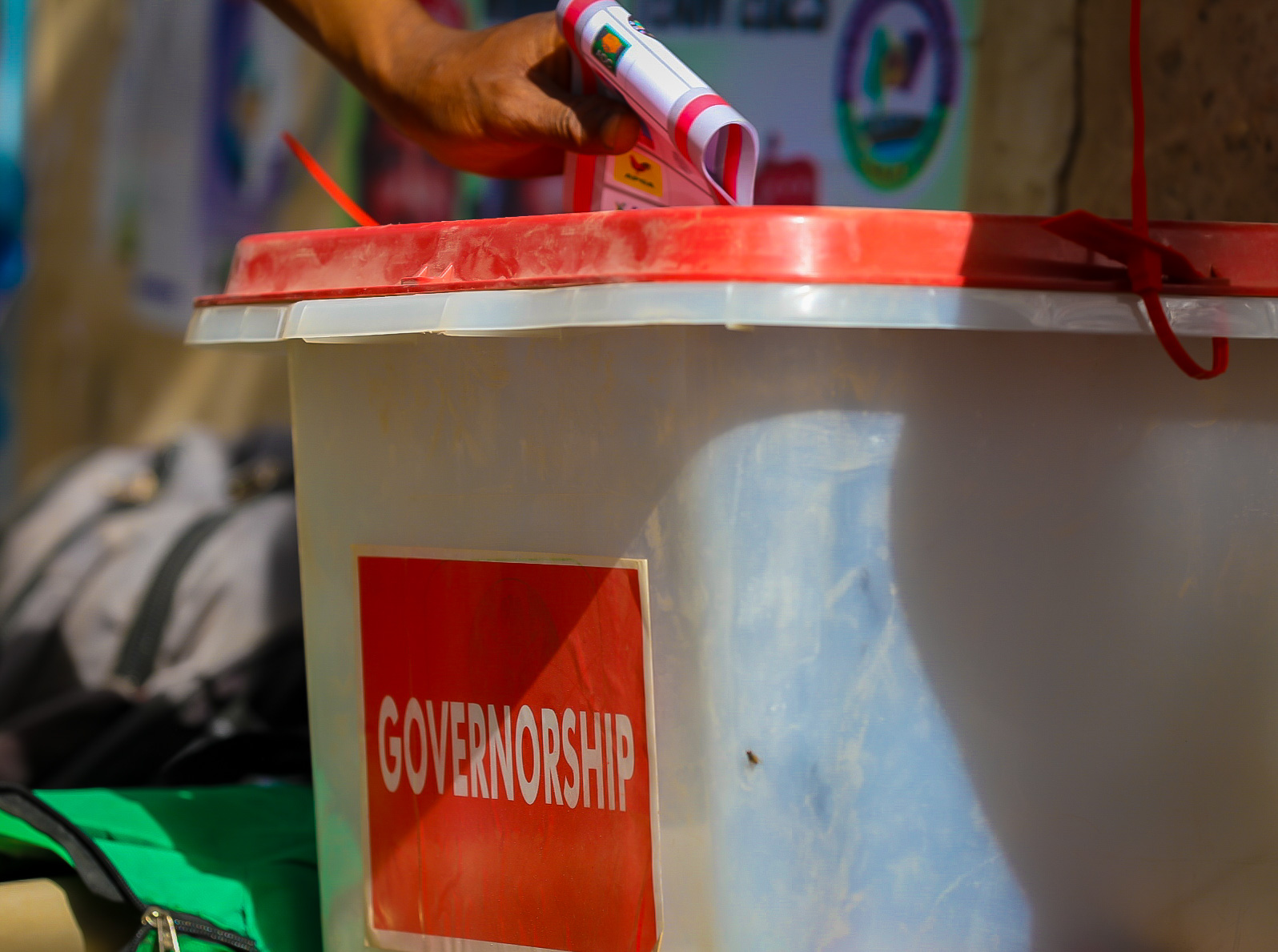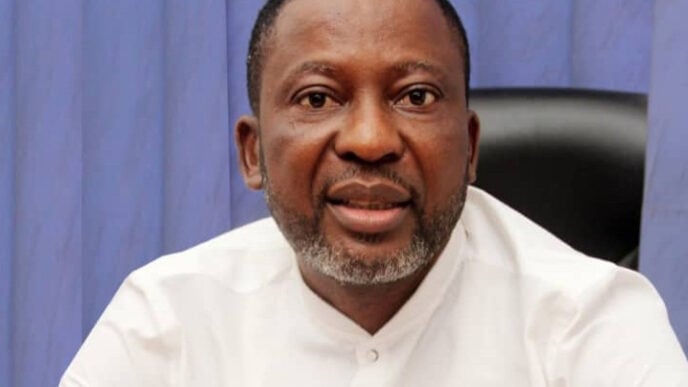Per the “1976 local government reform,” the local government in Nigeria is recognised as the 3rd tier of our federal system of government. So it has remained since then, through the military era, until the early days of the Fourth Republic in 1999. No sooner had the country returned to democratic rule, than the state governors started seeing local governments in their states as existing only at their mercies. They realised there was a strong possibility of the local government chairmen paying them back in their coins, what they normally do to the president.
I am talking about how they hold the president of the Federal Republic of Nigeria and the national leader of their respective parties, to ransom, when it comes to seeking re-election and trying to secure the party’s nomination. They are afraid of a situation where more than a dozen local governments in their respective states (safe for Bayelsa with eight local government areas) decide to pitch their political tents with a candidate contesting against the governor during a primary election.
To avoid the nemesis catching up with them, they ensure they install their puppets and remove them at will. They also ensure that they have no say in how the federal allocation accruing to the “governments at the grassroots” is expended. This is in contravention of several sections of the 1999 constitution, prominent among which are, sections 7 and 162. Section 162(6) which provides for the existence of a “state joint local government account”, is akin to the federation account. It beats my imagination, to think that what the governors would not tolerate from the president regarding the funds domiciled in the federation account, is precisely what they do to the local governments in their states with the local government joint account.
It would be recalled that about 10 years ago, the NGF under the leadership of Rotimi Amaechi of Rivers state took the federal government to court over how it spent money in the excess crude account (ECA), which warehoused the money realised above what was budgeted for in the appropriation act, which was supposed to be in the federation account. They established the illegality of the excess crude account, and the then-president was forced to share the money in the ECA. But these governors kept treating the local government’s finances, the way they wouldn’t allow the federal government to treat theirs.
Advertisement
It must be noted that there have been several court pronouncements declaring the conduct of the governors illegal but they were never bothered. For instance, the supreme court on May 7, 2021, pronounced illegal, the dissolution of democratically elected council chairmen and the subsequent installation of caretaker chairmen in all the local governments in Oyo state by Governor Seyi Makinde. The pronouncement was a sequel to a case filed by the Oyo state chapter of the Association of Local Governments of Nigeria (ALGON) against the governor. But this did not deter other governors across the country, from either dissolving democratically elected local government council officials, or constituting a caretaker committee, TIC, and stuff like that as a replacement, peopled by their cronies.
To put it more succinctly, they use it to settle “political IOU.” In addition to that, the federal allocation to these local governments, to governors, represents a bonus to bankroll their fancies and to satisfy the base instinct of the rapacious ones among them, looking for money for no other reason than self-aggrandizement.
All that changed on Thursday last week, July 11, 2024, when the apex court delivered the judgment in a case filed by the attorney general of the federation and minister of justice, Lateef Fagbemi (SAN) seeking the affirmation of “local governments’ (financial, and administrative) autonomy”. Money, as the saying goes, is the root of all evil. Once it is cut off, the evils cease to exist.
Advertisement
His Lordship, Justice Emmanuel Agim, who led the panel of judges, delivered the court’s judgment, asserting that local governments across the country should, henceforth, receive their monthly allocations directly from the accountant general of the federation. And allocation for any local government without a democratically elected chairman and councillors would be withheld until they comply. That has technically knocked off the obnoxious section 162 (6) which provides for the establishment of a joint local government account, without national legislative time being expended. The joint local government account is where the allocation for each local government is paid into before the governors begin to do whatever they like with it.
Justice Agim further ruled that it is illegal and unconstitutional for governors to receive and withhold funds allocated to local government areas (LGAs) in their states. By this ruling, the era of governors hijacking funds accruing to the local governments, and releasing the same to installed cronies or puppets, became a thing of the past. The date, July 11, 2024, will remain a watershed moment in the history of Nigeria as a nation, especially, regarding our political development, as it affects federal democracy. It would go down in history, as the day that a landmark judgment was delivered by the supreme court, rescuing over 200 million Nigerians from just 36 state governors. It would be remembered as the day democracy was restored in the grassroots. By that pronouncement, an end has come to a situation whereby a governor rendered the “government at the grassroots” financially effeminate, and politically emasculated. The stranglehold, the vice-like grip, of the governors over the third tier of our federal system was removed with little or no drama.
As we bask in the euphoria of this emancipation, we must not fail to acknowledge, and give credit to the AGF and the minister of justice, Lateef Fagbemi (SAN), who in his wisdom, and capacity as the number one law officer in Nigeria approached the supreme court for the proper interpretation of the provisions of the constitution on the matter — local government autonomy. He is the hero, in my estimation.
To me, in a very long time, this is the first time Nigeria has had an attorney general who understands his job descriptions. He seems to be aware that his job is not to entangle the federal government in many (often unnecessary) legal battles to dish out briefs to his lawyer friends. Fagbemi has demonstrated that he is not in that office for personal aggrandisement. He is not in office to engage in a “tug of war” with anti-graft agencies over case files of high-profile criminal suspects. He is a thoroughbred professional whose head is properly screwed on his shoulder. A lawyer who thinks straight and clearly. In my allocation of praises, I won’t forget the man who appointed him, President Bola Ahmed Tinubu.
Advertisement
On Fagbemi’s appointment as a minister last year, I learnt that his nomination by the president did not go down well with some political power brokers in his home state of Kwara because he is not a “politician” and, therefore, would not be there to protect any parochial political interest. So I knew he was headhunted by the president for a purpose. Kudos to the AGF and his boss!
It won’t be fair also to not recognise the courage and sacrifice of the impeached former chairman of Ìjẹ̀bú-Ode local government area, who voiced out when it was unsafe and unpopular to do so. But he did when he could no longer stomach how his state governor (Dapo Abiodun of Ogun state) was allegedly mutilating LG funds in the state. He was later impeached (by those who ought to have joined their voices and forces with his), arrested, detained, and prosecuted (persecuted) by security agents mobilised by the state government, for speaking up against the malfeasance. But today, he’s been vindicated. He is another hero that must be celebrated.
Meanwhile, some people have begun to express misgivings over what would happen to the local council development areas (LCDAs) created by states like Lagos and Ekiti. Well, I doubt that is anything to worry about. I was born and raised in and around a setting where local government administration was a professional calling. There are what we call development area offices. They are subdivisions within the local government area which attend to the peculiar developmental needs of those communities in those parts of local government. An area officer heads it.
My late father, for instance, was an area officer for Bunu Division, headquartered in Iluke-Bunu in the former Oyi local government area (now Ijumu, and Kabba-Bunu LGs) of (today’s) Kogi state, sometimes in the late 80s through the early 90s. There were three divisions in the then Oyi local government area (of Kwara, later Kogi state), namely, Bunu, Ijumu, and Kabba, popularly referred to as “B.I.K” then. My father would later rise to the position of treasurer in the Kogi state local government service, being an accountant by training before his demise. He died on duty (in a fatal motor accident) as the treasurer of Adavi local government area of Kogi state in October 2005, less than three months before his retirement. Pardon my little digression.
Advertisement
So the LCDAs would simply be made administrative units under any of the constitutionally recognised 774 local governments in the country. Funds accruing to the parent LG would be appropriated for development projects, based on the political discretion of the elected local government chairman. It is that simple.
Even though the chairman of the Nigerian Governors Forum (NGF) Mallam Abdulrahman Abdulrazaq said the governors are happy over the judgment, it is a fact that the governors use their grip on LG funds as a veritable tool for poverty weaponisations, such that when it is election time, whatever crumbs they drop for the people in the rural communities is appreciated beyond necessary. Although some of them did not soil their fingers in the oily joint local government account, where funds belonging to local governments are being warehoused before they’re siphoned, most of them are, guilty as charged. They use the illegal lien they hold on LG funds to starve a particular part of the state where they want to punish for political reasons, such that when they neglect them for over three years in office, the last nine months of the tenure, set aside for electioneering, would be used to share palliatives, with sugar-coated promises that would make the people forget the neglect-induced suffering from the past three years. The so-called caretaker chairmen are among the pauperised, do not forget. So there would be no “political irritant” to oppose the “lord of the manor” at the poll. Any dissenting voice would be taken care of, using “Taratatataaaaa…..” political philosophy. The scenario I described above happened in Kogi state between 2015 and 2023. And I believe it is still in force as I pound my keyboard. A tour around Kogi West senatorial district will give you a deeper understanding of the point I am trying to make. One would wonder if any government (state or local) has been in touch with that zone in the past two centuries, given the level of infrastructural decay that would be staring at such a tourist. But all that is expected to change, following the supreme court judgment of July 11, 2024.
Advertisement
Meanwhile, as we celebrate this sweet victory of 250 million people, against 36 over-pampered, over-fed, and powerful political employees of Nigerians, we must realise that, it is not yet uhuru, as the governors are still in a position to determine who gets elected into office as a local government chairman. This is because, in as much as the state independent electoral commission (SIEC), constituted, and funded, by the governors, will be the institution to conduct the election. He who pays the piper dictates the tune.
I can’t agree less with Professor Chidi Odinkalu who, while featuring on Channels Television’s Breakfast show on Friday last week, expressed reservation about the judgment in the aspect where the judge emphasised the constitutional provision that, the governor must ensure that there is in place, democratically elected chairmen and councillors. According to the professor of law, it means the whole thing still lies in the hands of the state governors to organise (a charade of) an election and install their puppets, who would, in turn, do their bidding with the funds. It will be difficult for governors’ puppets not to be elected into office. But a right-thinking person among the LG chairmen would remember that section 308 does not cover a local government chairman.
Advertisement
Nevertheless, that possibility won’t stop us from savouring the sweetness of this victory, as the supreme court rescues about 250 million of us from only 36 state governors. What an irony! We’d take the battle, one after the other. This is one down. The next will be either how to make the SIECs truly independent, or wean the process from them completely and transfer the same to the Independent National Electoral Commission (INEC).
The national assembly, on its part, must go a step further and explore areas where the supreme court judgment can be further strengthened. They need to amend the tenure of local government chairmen, from the current three-year to four-year per tenure to make it align with those of the president and the governors, and ensure it is conducted at the same period. This is so that no governors will have the time to rig any process in favour of their preferred candidate, as they’re expected to be busy with their re-election bids. These will safeguard the integrity of the recruitment process of the chairman and councillors.
Advertisement
On a final note, I listened to the chairman of the (NGF), Governor Abdulrahman Abdulrazaq of Kwara State tell a group of journalists during an interview after the judgment that all the governors are happy, about the judgment, as it would relieve the state governments of burden. He says the state governors spend a lot, augmenting the local governments’ allocation for them to be able to pay their (LG) workers’ salaries, monthly. I am very sure, the NGF chairman was not speaking the minds of his colleagues like Dapo Abiodun, Seyi Makinde, and Usman Ododo – his Ogun, Oyo, and Kogi states counterparts respectively, given what is happening presently in their respective states. Makinde, especially, betrayed his frustration over the judgment by sounding as though, he was going to appeal the supreme court judgment. That says it all, what these governors would be missing as a result of the judgment. But to borrow a line from one of Nyesom Wike’s tracks, “As e dey pain dem, e dey sweet us, as e dey sweet us, ọmọ, e dey pain dem.”
Contrary to the insinuation by the NGF chairman that, most local governments are unviable, and would go bankrupt, if they are granted their constitutionally enshrined autonomy, a friend, and a brother, Tunde Adeniyi, wrote on his Facebook page (and I quote) that: “If you allow local governments in Lagos to be in charge of Markets, Parks, Garages, Waste Management etc., as enshrined in the Constitution, they may not depend on Federal allocation. If you allow the local government covering the Onitsha market to take revenue due to it, they will not depend on Federal allocation
Same with Kano, Rivers etc.” He did not stop at that, as he went further to say again, that: “If the local governments are allowed to function as the constitution prescribes, the governors become less powerful.
This explains why all states, nationwide and across parties, have kept the councils weak. It is the enlightened self-interest of the governors that the local governments remain functionally and administratively subdued.”
I don’t think I have anything to add, as that breathes life into my thoughts. I couldn’t have put it more succinctly than this.
The different sources of LG revenue, provided for, in the Nigerian constitution, are: FAC and; 10% of State IGR; the rest being revenues from residual sources as provided for, in Section 7 and the 4th schedule of the 1999 constitution, the local governments will function optimally, barring the undue interference by the 36 lords of the manor.
For those arguing that local governments have no place in a federal system, that would be assuming a position of being intellectually landlocked. That sounds as if there is a one-fits-all model for a federal system of government globally. Across the world, every nation practising federalism as a system of government does so following its local peculiarities. Some adopt the 2-tiers system, while others 3-tiers. For example, India and Belgium practise the three-tier system of federalism, while others like Switzerland, USA, Germany, Italy, Canada, and Australia practise the two-tier system. In Belgium, it is much more complicated as, within the same sovereign State, with their dual form of federalism, in some parts of the country, their federalism is two-tiered, while in others, it is three. That is talking about the Fleming and French-speaking Walloonian communities. But the complicated matter was later settled in the parliament, with all, agreeing to a three-tier system. So in Nigeria, going by the 1976 local government reform, like in India and Belgium, it is three-tiered. End of story.
The president of the Nigerian Senate, Godswill Akpabio also weighed in, vowing to ensure a full implementation of the supreme court judgment. This is a former governor (of Akwa-Ibom state) — one of those who never saw anything wrong with the way his former colleagues were mutilating LG’s destiny, while he was in office. Nevertheless, we thank God, for the man has been “born again”, unlike James Ìbòrí, who lorded it over Delta state from 1999 to 2007, condemning the judgment. He believes that the judgment granting financial (and to a great extent, administrative and political) autonomy to the local governments has done federalism, in Nigeria. Well, who cares what he thinks? After all, we are not sure, if LG funds were not part of the money that put him behind bars in the UK, shortly after he left office. I learnt also that Ayo Fayose, and Kayode Fayemi, both predecessors and successors to one another, are not comfortable with an autonomous system of local government administration, in line with the principle of federal democracy. That is their cup of tea. If such autonomy worked and brought about development during the military era, I see no reason it won’t, if the governors maintain their lanes, as spelt out in the constitution.
Kudos must be given to Alhaji Atiku Abubakar for viewing the judgment from a bipartisan lens. The days ahead would be interesting ones. We shall wait to see how the governors come to terms with the fact that, joint accounts for local government no longer exist.
Abubakar writes from Ilorin, Kwara state. He can be reached via 08051388285 or [email protected]
Views expressed by contributors are strictly personal and not of TheCable.
Add a comment

